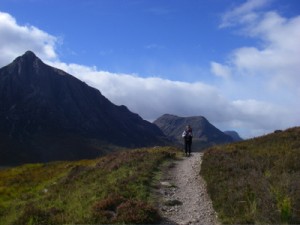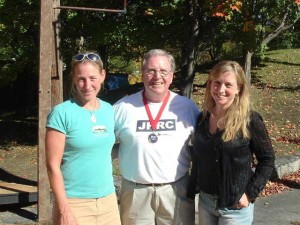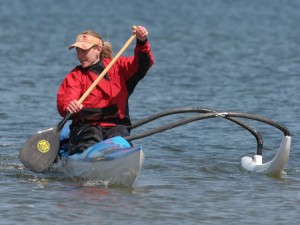
"To one with wisdom beyond your years, I would be interested to know more about the process you undertook to know what life's work or endeavors might resonate with your inner being. Society stands at hand to fool or encourage one into traditional or expected pursuits."
I received this comment from Tony Philpin in response to my last blog. It got me thinking. I don't present myself as any kind of a guru, so please don't take this as a definitive 'how to find your life purpose'. It's merely my attempt to summarize the very haphazard process that I went through over the course of several years.
As I see it, there are 3 strands to this enquiry - from the top down, they are:
1. Purpose: what is the point of being me?
2. Personality: what are my personal preferences and strengths?
3. Project or Profession: what will I do day-to-day to live out my purpose in a way that suits my personality?
I didn't figure out my own personal 3xP in any methodical way. There was one formal 'exercise' that I did, which was to write 2 versions of my own obituary - imagining myself at the end of my life, I wrote down
a) how I would like to be remembered, and
b) how I was more likely to be remembered if I carried as I was.
At that stage of my life, about 7 years ago, there was a dramatic difference between the two. It was a major wake-up call that I needed to make some changes if I was going to end up with a life that could be proud of, rather than lying on my deathbed with a heart full of regrets. Now, I am pleased to say, I am much more on track for the obituary I want, having made a large number of incremental steps over the years, out of my old life and into a new.
You may find it easier to try and complete this sentence: "[insert own name] will be remembered for his/her outstanding contribution to mankind because..." or "[your] life was special because..."
Some other tips and hints, again based purely on my own experience and with all appropriate disclaimers:
- Don't be afraid to make mistakes. I muddled around a lot, trying out various lifestyles only to find that they didn't work for me. These experiments were not 'failures'. Thomas Edison said: "I haven't failed. I've just found 10,000 ways that don't work." Eliminating possibilities is all part of the learning process.
- It is an iterative process. I didn't manage to find a purpose, then analyse my personality, then identify a suitable project. For me, it was a much more meandering process, with each of the 3xP informing the others, gradually over a period of time.
- Relax. There is no right or wrong answer. There were lots of other projects I could have taken on, other than ocean rowing, that would have been a good expression of my personal values. Ocean rowing just happened to tick more boxes than any of the others. But a time will come, when I am (even more) old and decrepit, when I will need to find a different pursuit.
- Listen to your heart as well as your head. When I had my 'lightbulb moment' - the flash of inspiration to go row an ocean - I was not especially trying to find the answer. Some people have their best brainwaves in the shower, when their subconscious has been mulling on a question overnight and suddenly out pops the answer. For me, the inspiration came while I was driving and in a similar alpha-wave mental state. I immediately knew it was perfect - it just took a bit longer for my heart to convince my head that rowing an ocean was do-able.
- Remember that a life purpose does not have to be a spectacular grand gesture. Your life purpose may be to clean public toilets. Somebody has to do it, and it may be the one thing that you find more satisfying than anything else. But whatever you choose to do, do it to the absolute best of your ability. Quality is the key. If you clean toilets, make sure they are the best, cleanest, most beautiful toilet facilities anyone has ever seen.
To quote Cyril Connolly: "We must select the illusion which appeals to our temperament and embrace it with passion, if we want to be happy."
Or George Bernard Shaw: "Life is not about discovering yourself, it is about defining yourself."
In other words, this is not so much about 'discovering' a life purpose. It is about deciding on a purpose, and committing wholeheartedly to it.
Well, that's what I reckon anyway. Try it and see. What's the worst that can happen?!
P.S. On a more mundane note: I went to see Brocade a couple of days ago. She is fine, and safely ensconced in a hangar in the East Bay, awaiting her chance to shine next year.
And today I treated myself. I rarely buy things, as I don't need much in this life. But these two items seemed worth splashing out: a new pair of running shoes, and a TomTom sat nav kit for my truck. I will be doing a lot of running and a lot of driving over the coming months, and want to minimize my chances of getting injured and lost respectively.
[photo: random shot of my sister on the West Highland Way in Scotland last month - or maybe some reference to the road less travelled...]
|
|

Three people in the last three days had asked me if I'd seen the film Into The Wild, so I thought I better had.
Directed by Sean Penn, it tells the story of Chris McCandless who, inspired by Henry David Thoreau (whose Walden was an influence on me as well - it partly inspired my decision to start rowing oceans) set out into the wilds of Alaska in search of solitude, self-sufficiency, and himself. The story didn't turn out too well for the hero, but the ideal underlying his ill-fated adventure is still valid.
As Sean Penn said in an interview about the film, people should be encouraged to "take risks - not reckless endangerment, but at least make the heart beat faster ... to make the effort to step outside of their comfort zone."
He added: "The main issue is that ... each individual in their own way must be ready to do whatever's necessary - to make a real job out of finding out who they are, and to do it on their own terms."
I agree. I spent many years in a job that was not 'me' - it didn't match my values, but I continued with it for so long because it was what was expected of someone with my educational background, and all my peers seemed to be happy enough in similar jobs. At the time I didn't know myself sufficiently well to figure out why I found it unsatisfying and unfulfilling. It was only when I started to put in the hard work and got to know myself better that I began to understand why it wasn't working for me.
Once I had started down that path of getting to know myself and pushing my boundaries, it got exciting and rather addictive... and that is partly why I decided to row across oceans. The Atlantic was my Alaska, but unlike Chris McCandless, fortunately I lived to reap the benefits of the experience. Spending 103 days alone on the ocean is an extreme but very effective crash course in personal development.
What did I enjoy most about the film? The look of intense alive-ness that Chris McCandless has in his eyes when he looks around at the natural wonder of Alaska, and knows that he is in the right place.
|
|

My time on the East Coast is drawing to a close. I spent the weekend in Cambridge, Massachussetts, watching the Head of the Charles and enjoying the glorious autumn weather.
The photo shows Margo Pellegrino and me with her friend and supporter Greg Parker, who took up rowing 6 years ago at the age of 53. It's never too late!
I also had a chance to catch up with Peter King of WaterRower - who kindly loaned me rowing simulators to train on for both the Atlantic and Pacific. I spent up to 16 hours a day on my WaterRower while I was preparing for the Atlantic, so feel well-qualified to vouch for the high quality and realistic rowing motion of the machines. I was pleased to learn that, rather than having their goods made in China as so many companies now do, WaterRower make them here in the US, out of wood from sustainable sources.
And I met for the first time Tim Willsallen, an Australian rower who farms sheep in upstate New York (!) who was a regular texter while I was on the Atlantic. His messages were always interesting and thought-provoking and provided mind-fodder for many otherwise tedious hours at the oars. Yes, even the most wonderful oceanic wilderness can get monotonous when you are rowing for 12 hours a day without a functioning stereo to stimulate the mind....
Tomorrow I bid goodbye to New York to fly back to the West Coast to prepare for a presentation to 900 salespeople at the Brocade conference on November 7. After 5 weeks of constant travel, getting back to the Bay Area will feel almost like going home...
|
|

This morning I went for a run with a three-legged dog and my friend Margo Pellegrino (above), who this summer paddled nearly 2000 miles from Miami to Maine to raise awareness of marine conservation.
Margo was faster than me. So was her dog. But not to worry - I gave it my all, and even if that wasn't quite enough to keep pace with Margo it still helped move me closer to my goal of a respectable time in a half-marathon next February. I rarely get the chance to train with a partner, and it really helped me stretch myself beyond what I thought was possible, to try and avoid total humiliation. It was good to find a training partner who is just a bit better than me, to challenge me and make me push myself.
Once I'd recovered we hit the road - a beautiful drive up to Woburn, MA, to watch tomorrow's Head of the Charles Regatta. The bright sun brought out the glorious reds, yellows, pinks and golds of the autumn foliage. It was a long-ish drive - about 6 hours - but we talked nonstop and the miles whizzed by.
Good luck to all those competing in tomorrow's Amsterdam Marathon (especially Sam and Jason), and well done to the England rugby team on enormously exceeding everyone's expectations in the World Cup - a magnificent and spirited effort.
|
|